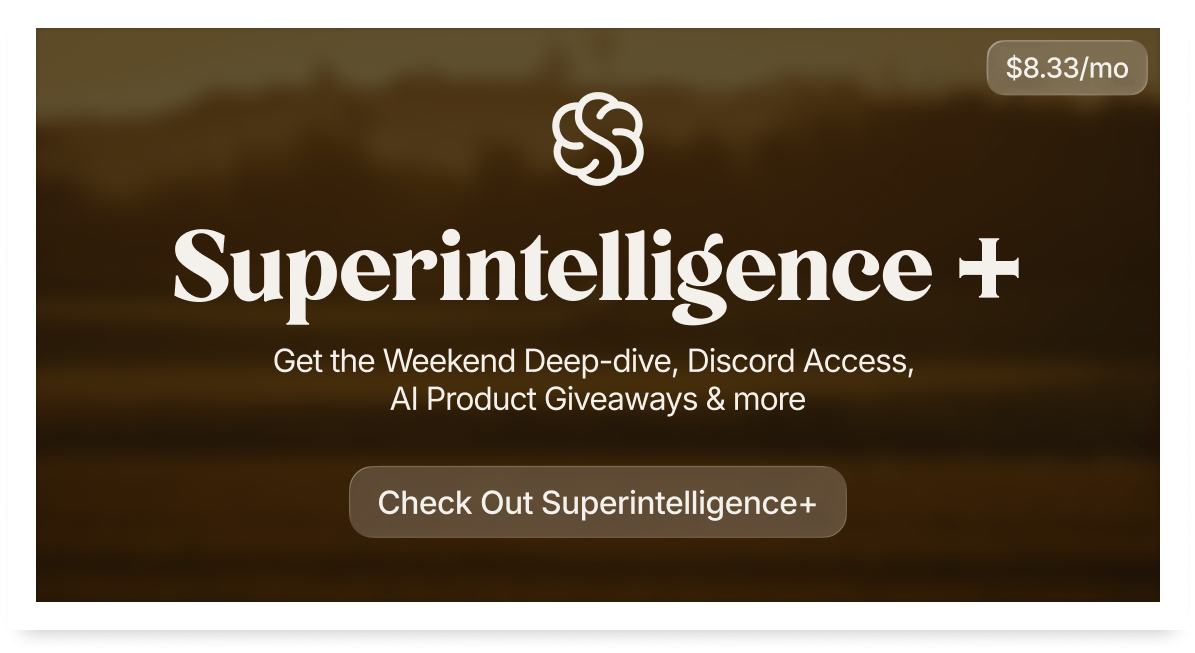
Dear Readers,
Every so often, the technological landscape doesn't just evolve; it shifts entirely beneath our feet. Today marks one of those defining moments with the arrival of Google’s Gemini 3.0, a release that fundamentally redefines AI from a passive chatbot into an active, "ambient" agent capable of deep reasoning and autonomous execution. If you have been waiting for a model that doesn't just answer questions but actually does the work—seamlessly integrating into your OS to code, plan, and create—the era of true agentic AI has officially begun, and it is setting a formidable new benchmark for the industry.
But the shockwaves don't stop at software. In this issue, we explore the physical collision between tech and reality: local communities are increasingly pushing back against the sprawling infrastructure of data centers, while Google DeepMind’s new weather AI begins to outperform traditional meteorology with terrifying precision. We also unpack OpenAI’s curious new classification as an "Emerging Leader" and dive into a robotics sector that is simultaneously investing in "huggable" humanoids and autonomous defense systems. Let’s dive into a future that is moving faster than ever.
In Today’s Issue:
♊ Google's Gemini 3.0 Pro ushers in the era of autonomous "Ambient AI" agents
💰 Tether reportedly plans a $1B investment in Neura.
🛡️ South Korean startup Bone AI raises $12M
🤖 Chinese EV maker XPeng unveils a huggable humanoid robot
✨ And more AI goodness…
All the best,




Local communities push back big tech
A new report finds that U.S. state and local opposition to large-scale data-centers is rapidly increasing, with many projects being blocked or delayed due to concerns over power use, water consumption and impacts on local infrastructure. The resistance is bipartisan and geographically broad, cutting across typical political divides. For companies and policymakers, it signals that digital-infrastructure expansion now comes with mounting social and regulatory risks.

AI forecasts weather with unprecedented precision
WeatherNext 2 by Google DeepMind and Google Research delivers weather predictions up to 8× faster and at significantly higher resolution—forecasting hundreds of scenarios in under a minute on a single TPU. The model outperforms its predecessor on 99.9% of variables and lead times (0-15 days) and is now integrated into major Google platforms (Search, Maps, Pixel Weather).

OpenAI named Emerging Leader Generative AI
OpenAI has been recognized by Gartner in their 2025 Innovation Guide for Generative AI Model Providers as an “Emerging Leader”, reflecting OpenAI’s progress in helping over 1 million companies deploy AI at scale. The company emphasises that AI is now becoming a core layer of enterprise infrastructure and highlights its major investments in privacy, data governance, monitoring, and evaluation to support safe deployment.


The 1X Neo is a $20,000 home humanoid robot that appears futuristic but still relies heavily on human teleoperators watching through its cameras, making it far from truly autonomous and raising significant privacy concerns.


Google’s Gemini 3.0: The Era of Autonomous Agents Has Begun!
The Takeaway
👉 Agents over Chatbots: Gemini 3.0 prioritizes "agentic" workflows, meaning businesses can now deploy AI to independently execute multi-step operational tasks rather than just summarizing data.
👉 Ambient Integration: The model’s deep embedding into the Google ecosystem (Workspace/OS) eliminates copy-paste friction, allowing for direct manipulation of documents and code environments.
👉 Reasoning as a Service: With "Deep Think" capabilities, developers should pivot from prompt engineering for style to designing systems that leverage the model's logic and planning faculties.
👉 Visual Native: The enhanced multimodal features (native SVG/UI generation) effectively render traditional "design-to-code" handoff processes obsolete for rapid prototyping.
The wait is finally over, and the landscape of artificial intelligence has just shifted beneath our feet - Google has officially unleashed Gemini 3.0 Pro, and it is nothing short of a revelation!

Forget everything you know about static chatbots; Gemini 3.0 represents a monumental leap into the age of "Ambient AI.” This isn’t just a model that answers questions; it is a fully agentic system designed to "think" and "do.” Integrating seamlessly into your daily workflow - across Chrome, Android, and Workspace - Gemini 3.0 utilizes advanced "Deep Think" reasoning capabilities to execute complex, multi-step tasks autonomously. From generating production-ready code to analyzing entire repositories and rendering instant, interactive UI prototypes, this model moves beyond simple text generation to genuine problem-solving.

Thankfully, I was able to be an early tester. It's the best model I've ever tested - nothing comes even close to it. OpenAI will have a very hard time to keep up with Google, because Gemini 3.0 will now be the benchmark for all future models.
Why it matters: Gemini 3.0 marks the decisive transition from AI as a passive tool to AI as an active agent capable of autonomous execution. This release fundamentally changes the developer ecosystem by making "ambient" intelligence a standard utility rather than a standalone feature.
Sources:
🔗 https://blog.google/products/gemini/gemini-3/
🔗 https://www.google.com/url?sa=E&q=https%3A%2F%2Fdeepmind.google%2Ftechnologies%2Fgemini%2F[[4


Free email without sacrificing your privacy
Gmail is free, but you pay with your data. Proton Mail is different.
We don’t scan your messages. We don’t sell your behavior. We don’t follow you across the internet.
Proton Mail gives you full-featured, private email without surveillance or creepy profiling. It’s email that respects your time, your attention, and your boundaries.
Email doesn’t have to cost your privacy.



Tether looks to jump into robotics with reported $1 b investment in German startup Neura
Tether is reportedly negotiating a $1B investment in Germany’s Neura Robotics, a company building AI-powered humanoid robots. Neura already claims over $1B in preorder commitments and is targeting a valuation in the $8–10B range.

Bone AI’s $12M bet: arming the West against Asia’s robotic rise
South Korean startup Bone AI raised $12M to develop autonomous defense robots, positioning itself in the escalating robotics race between Western countries and Asia.

A Chinese Tesla rival is building a humanoid robot designed to be huggable
Chinese EV maker XPeng unveiled its humanoid robot “Iron,” featuring artificial muscle structures and bionic skin, with plans for production by late 2026 and ambitions to reach 1 million units annually by 2030.






